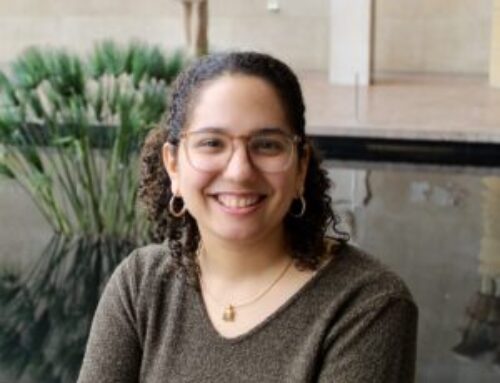
The Constantine Cannon whistleblower team is happy to announce the Fourth-Place Winner of the firm’s Fourth Law School Scholarship Essay Contest on the importance of whistleblowers. That award (and the $300 prize) goes to Cynara Onyemordi!
Cynara is a recent political science graduate from the University of British Columbia. During her undergraduate studies, Cynara developed a passion for the law and using this newly gained knowledge to protect vulnerable communities, which further fueled her drive to earn a JD.
In her whistleblower essay, Cynara uses real-life experiences that have had a lasting impact on her worldview as well as how she will implement advocacy into her life. This fall, Cynara will begin her path towards becoming a lawyer at Allard Law School in British Columbia, Canada.
We will post more winning essays in the weeks ahead and we just launched our Fifth Law School Scholarship Contest. Check out our eligibility requirements if you’re a law student and would like a chance to win. If you’re not already a subscriber to our weekly newsletter, please sign up to catch the latest whistleblower news, developments, and what the government is doing to go after fraud and misconduct.
Whistleblower Essay By Cynara Onyemordi
My first introduction to this term comes to me vividly in flashes of CNN, displaying in the family living room countless videos and photos of Edward Snowden and his global surveillance leaks exposing the NSA and other organizations for their inconspicuous spying on everyday citizens. I was 12 years old at the time, naive and unaware, but even I could understand that he had done something big, something irreversible. What I couldn’t understand, however, was his bravery and sacrifice. Why had he chosen to upend his entire life to reveal these classified secrets? At school the next day, a friend of mine explained to me what he and countless Americans believe about whistleblowing – including his parents, who likely were the first ones in his household to espouse these ideas.
“No one actually likes whistleblowers”, he said, “but they’re necessary for the common good.”
At 12, the words ‘common good’ didn’t resonate with me, but I felt in my bones fully the former part of his statement: No one will like you if you speak up. That part, tattooed in the back of my mind, stuck with me for years. It wasn’t until I was reintroduced to the idea of being a whistleblower in my own life that I was able to readjust and correct this perspective.
As a Black person who has spent my entire educational and even personal life in predominantly white spaces, I have become accustomed to the challenges that many often face. I have been excluded from social events, called slurs and been treated poorly in every stage of my life. I decided at some point that sticking up for myself wasn’t worth all that could come from it, that it was easier to keep my head down and let these micro-aggressions slide off my back. While this approach worked to mitigate the emotional harm I would have faced, imperceptibly, I became too numb and unmotivated to confront these uncomfortable encounters.
My first job was working in a retail environment. I was, of course, the only person of color at the job and, coincidentally, the only person who caught the negative attention of my manager. I worked as hard as possible to become one of the best employees, but my attempts proved to be fruitless. My manager was always unhappy with something I had done. I simply couldn’t get it right, and in his eyes, I didn’t seem to be improving. Things continued this way until my friend Lara* was hired.
Lara was, like me, a person of color who had similar views on how to navigate her existence. She was likable, a hard worker and easy to be around. Despite this, my manager began to treat her similarly to me almost immediately upon her hiring. Lara, like me, never called attention to it and did her best to stay out of his way.
One day, however, after a shift we’d both shared, Lara confessed to me that she was thinking of leaving. She explained, through tears, that she could take our boss’s cruelty but couldn’t allow herself to work in an environment where she was called a slur. She didn’t want to report him because she believed it would be easier if she just left than face the potential of being fired.
Hearing Lara describe our manager’s actions as cruelty deeply affected me; it was then that I fully grasped the weight of our shared experience. I wanted to encourage her to speak out, but her rationale was hitherto our shared philosophy, and I understood her perspective.
While Lara ended up leaving, I stayed, and the conversation became a turning point in my life. With Lara’s permission, I reported my manager’s actions to his senior manager, detailing what both of us had experienced under his leadership. He was subsequently removed from his position and was replaced by a manager whom I would grow to deeply respect and admire. During the process, I was afraid of the repercussions that I might face in speaking out, but I finally understood why it was worth it. It does not benefit me, nor is it easier to coexist with iniquities. And just as there is a chance for negative consequences, there is also a chance for change.
This experience has holistically colored and shaped how I will engage with the law upon completing my JD. As someone who will have both the power and tools to advocate, it will not only be my pleasure to speak out against wrongdoing, but it will be my duty.
*Name has been changed.
Read Fourth Place Winner of Constantine Cannon’s Whistleblower Essay Contest: Cynara Onyemordi at constantinecannon.com






Leave A Comment